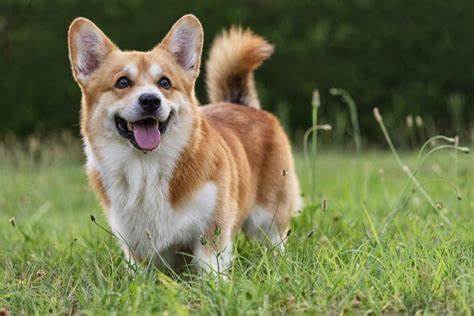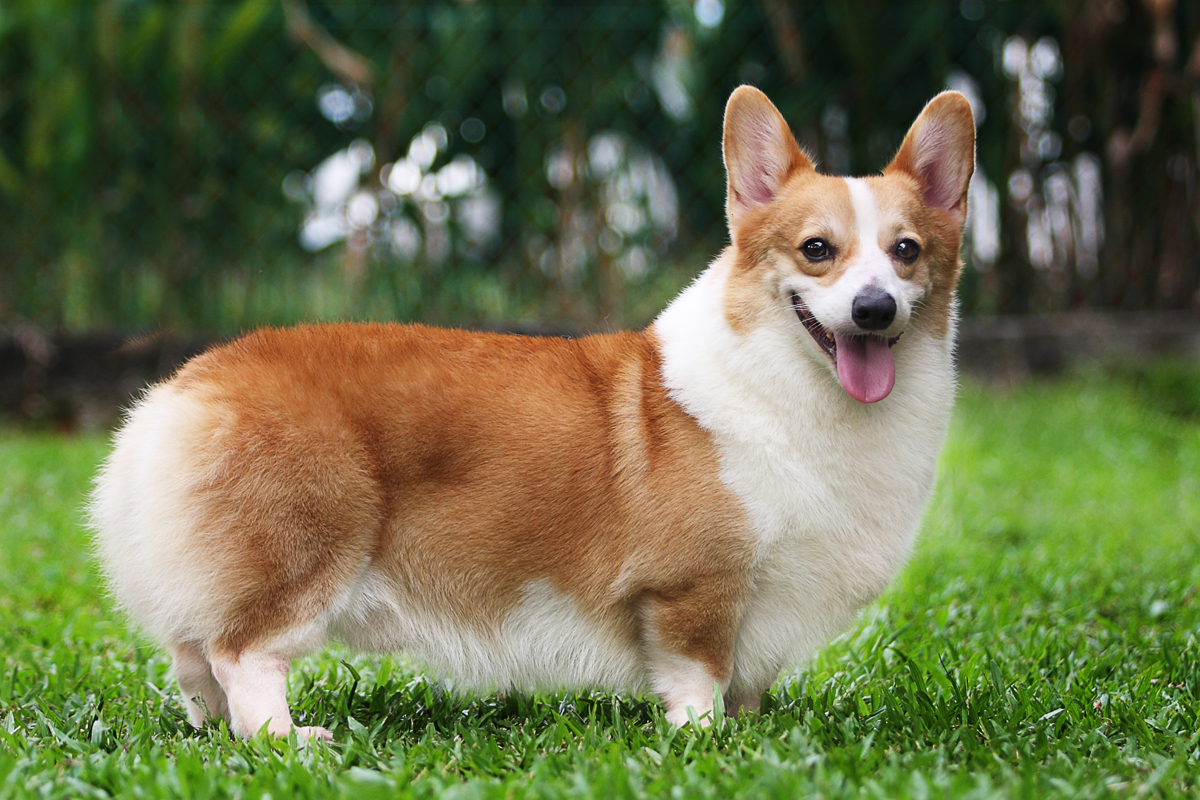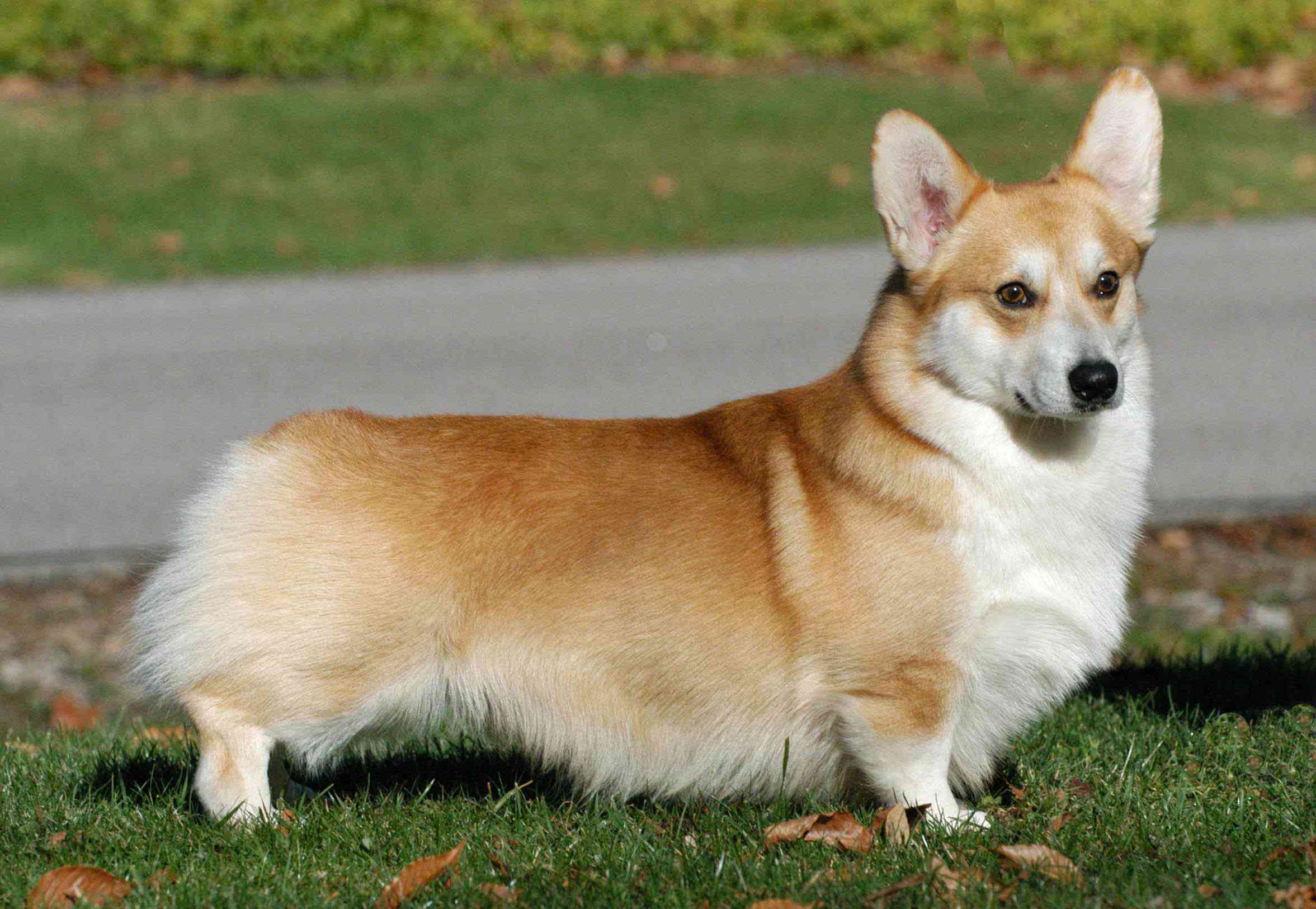
The Pembroke Welsh Corgi hails from Pembrokeshire, Wales, and is one of the oldest herding breeds, with roots that trace back to at least the 10th century. Originally bred to herd cattle, the breed is believed to have descended from Swedish Vallhunds brought to Wales by Viking settlers and crossed with local herding dogs.
The breed was officially recognized by the UK Kennel Club in 1928, and a split from its cousin, the Cardigan Welsh Corgi, was formally recognized in the 1930s. The Pembroke gained international fame due to its association with Queen Elizabeth II, who received her first Corgi as a child and went on to own more than 30 during her reign.
The Pembroke Welsh Corgi is a beloved household companion around the world, particularly in the United Kingdom, the United States, and Japan. Its charming looks, outgoing personality, and manageable size have made it a favorite among city dwellers and rural families alike.
Its association with British royalty only enhanced its public appeal, while its intelligence and agility continue to make it a favorite in dog sports and obedience competitions.
This breed is small but sturdy, with a foxlike face, upright ears, and a distinct lack of a tail (either naturally bobbed or docked). It has a muscular build and a confident posture despite its short stature.
• Coat: Medium-length, weather-resistant double coat.
• Color: Common colors include red, sable, fawn, and black and tan, usually with white markings.
• Size:
o Height: 10–12 inches (25–30 cm)
o Weight: 24–30 lbs (11–14 kg)
• Head & Expression: Alert, intelligent, and friendly, with a rounded skull and tapered muzzle.
• Ears: Medium-sized, erect, and slightly rounded at the tips.
• Tail: Typically very short or absent in Pembrokes (unlike the Cardigan).
• Body: Long, low-set body with a level topline and sturdy build.
The Pembroke Welsh Corgi is a spirited and devoted breed with a big personality packed into a small body.
• Lively and Bold: Always ready for action, full of energy and curiosity.
• Devoted and Loyal: Forms strong bonds with family members and can be protective.
• Herding Instincts: May attempt to herd people or pets, including ankle nipping during play.
• Smart and Trainable: Exceptionally intelligent and quick to learn commands.
• Vocal: Has a tendency to bark at new sounds, making it a good watchdog.

For those seeking an intelligent, fun-loving, and loyal companion, the Pembroke is an ideal choice.
• Adaptable: Thrives in apartments or homes with yards—just needs regular exercise.
• Family-Oriented: Gets along well with children and can live peacefully with other pets.
• Loyal Guardian: Protective without being aggressive, naturally watchful.
• Entertaining Personality: Expressive and playful—brings laughter and energy to any home.
While relatively low-maintenance, Corgis do require mental stimulation and physical activity to prevent boredom and destructive behavior.
• Training:
o Highly trainable and food-motivated—excels in obedience, agility, and tricks.
o Early training is key to manage herding tendencies.
• Exercise:
o Needs at least 45–60 minutes of activity daily—walks, play, or structured games.
o Mental enrichment is just as important.
• Grooming:
o Moderate shedders—brush 2–3 times a week, more during seasonal shedding.
o Occasional baths; regular nail trims and ear cleaning are essential.
• Nutrition:
o Feed a well-balanced diet suitable for small but active dogs.
o Prone to obesity—measure meals and limit treats.
• Companionship:
o Doesn’t like being left alone for long periods. Needs regular human interaction.
The Pembroke Welsh Corgi is generally a healthy breed with a life expectancy of 12–15 years. Some common concerns include:
• Intervertebral Disc Disease (due to long back)
• Hip dysplasia
• Degenerative myelopathy
• Progressive retinal atrophy (PRA)
• Obesity (which can exacerbate joint and spine problems)
Reputable breeders conduct health testing and promote responsible breeding practices.

While often confused with the Cardigan Welsh Corgi, the Pembroke is smaller, has a more foxlike face, and lacks the Cardigan’s long tail. Compared to Dachshunds, Pembrokes are more active and agile. They are less independent than Shiba Inus but more social and trainable.
If you're looking for a devoted and active companion with a bright personality and a heart full of loyalty, the Pembroke Welsh Corgi could be your perfect match. Whether you're in a city apartment or a countryside home, the Corgi's versatility and charm make it a lovable and lasting member of any family.
United Pet Club is here to support you with guidance on breeders, care tips, and training support. With its royal charm and fun-loving personality, the Pembroke Welsh Corgi is ready to march into your heart and home.